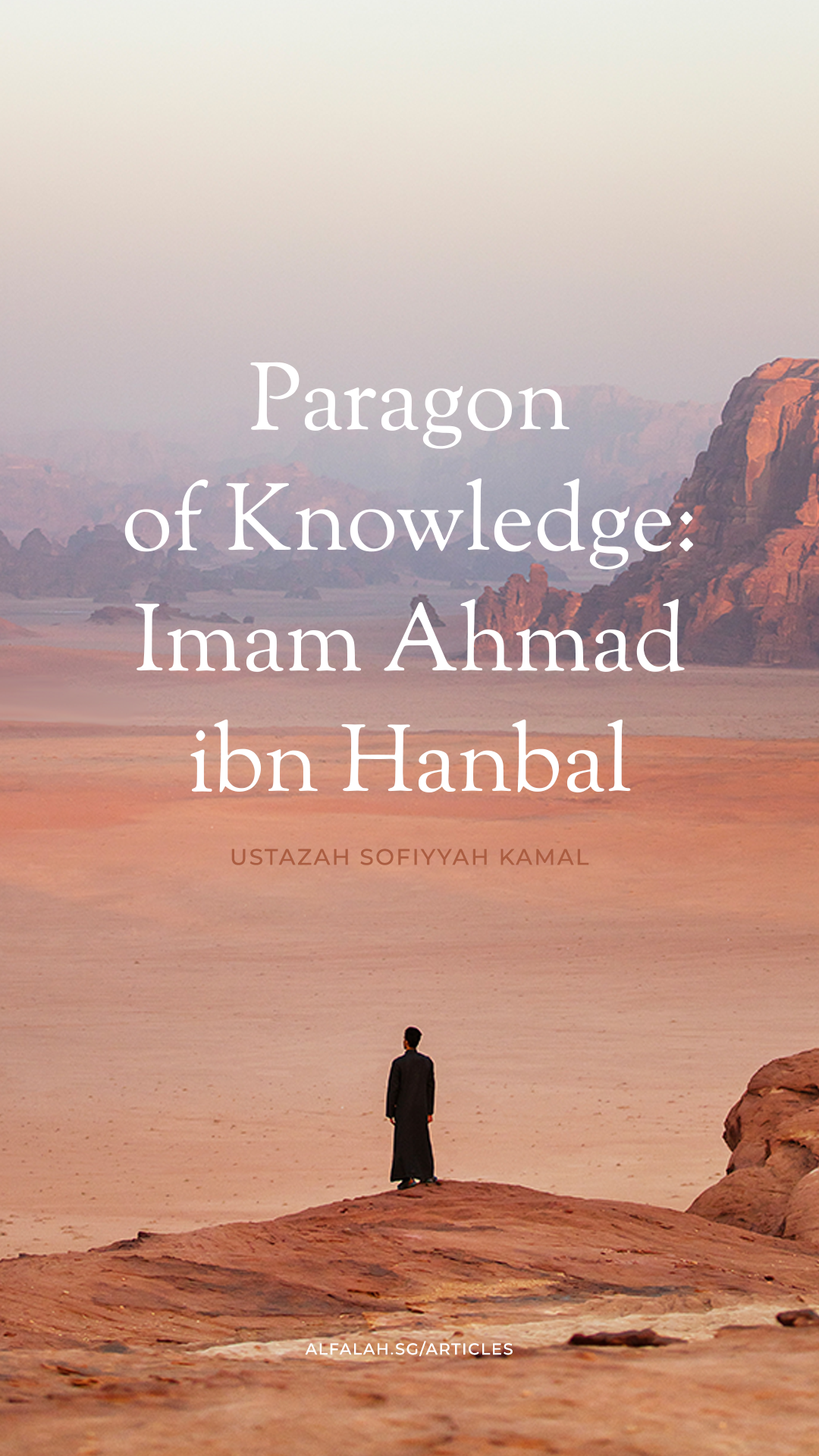Articles
What is a Weak Hadith?
Introduction
The study of hadith—the sayings and practices of the Prophet Muhammad (s.a.w)—has long been undertaken with great dedication by scholars, some of whom devoted their entire lives to identifying authentic (sahih) hadith from weak (daif) ones. This effort is vital for protecting the religion and preserving the words of Rasulullah (s.a.w).
Scholars from earlier generations, like Imam al-Bukhari and Imam Muslim, Imam al-Nawawi, Ibn Hajr al-Asqalani and many others dedicated themselves to ensuring the authenticity of hadith for these important purposes.
Given recent concerns about some using da’if (weak) hadith to support certain claims or acts of worship, it is essential to understand what renders a hadith “weak.” Such knowledge enables everyday Muslims to approach these narrations with caution, allowing them to better assess their reliability as a basis for practice and belief. This awareness fosters a more thoughtful approach to religious teachings, prioritizing those with a strong foundation in Islamic tradition.
What is a Daif hadith?
Linguistically: the word Daif means “weak”—the opposite of something strong.
Technically, a weak (Daif) hadith is one that does not meet the criteria of an authentic (sahih) or acceptable (hasan) hadith.
وَهُو ما لمْ يَجْمَع صِفةَ الصَحيحِ أَو الحَسَنِ
Specifically, a weak hadith is one in which one or more of the five essential conditions for sahih or hasan hadith have not been met, which are continuity of the chain, uprightness of the narrators, accuracy in terms of their memory as well as their written records, non contradictory & absence of defects. In short, the two primary causes that contributes to weakness in a narration are:
- A break in the chain of narrators.
- Problems or deficiencies in the narrators themselves.
Examples of weak or Daif hadith.
“Seeking knowledge is a duty upon every Muslim, and he who imparts knowledge to those who do not deserve it, is like one who puts a necklace of jewels, pearls and gold around the neck of swines.” – Graded as Da’if. Sunan Ibn Majah: 224
Types or Levels of Weak Hadith
Are all weak hadith the same? Not exactly. There are varying levels of weakness, depending on the nature of the deficiency. For example:
- A mildly weak hadith may have a trustworthy narrator who occasionally makes mistakes in recalling details from memory.
- A more seriously weak hadith involves narrators with uncertain or problematic reputations.
- A hadith classified as Munkar is one with strong evidence suggesting that the Prophet s.a.w did not make the statement.
Conditions for Using Weak Hadith
Can weak hadith be used? Is it permissible to narrate them? Generally, scholars agree that weak hadith should not be used in two primary contexts:
- Matters related to beliefs or creed, such as the asma’ wa’sifat (names and attributes of Allah).
- Matters involving legal rulings, such as halal and haram.
However, when it comes to topics like fadhail al-a’mal (virtuous deeds), targhib wa tarhib (encouragement and warning), scholars present three main opinions:
1. Weak Hadith Should Never Be Used.
Some scholars, like Imam al-Bukhari, Imam Muslim, Yahya ibn Ma’in, Ibn Hazm, and Sideeq Hasan Khan, held the view that weak hadith should not be used at all, regardless of the subject.
2. Weak Hadith May Be Used in the Absence of a Stronger Alternative.
Attributed mostly to jurists (Fuqaha’), this view allows weak hadith to be used when no stronger evidence exists, particularly when compared to Qiyas.
3. Weak Hadith Can Be Used for Virtuous Deeds with Conditions.
Many scholars inclined towards this view, provided that specific conditions are met. Ibn Hajar al-Asqalani outlines these conditions:
- The hadith should not be very weak; narrations from individuals known for significant mistakes or falsifications are not acceptable.
- The subject of the hadith should already be supported by established Islamic principles.
- Those who act on the hadith should maintain awareness of its potential weakness and avoid firm belief in its authenticity.
- Sheikh Subhi al-Saalih & Dr. Yusuf al-Qaradawi adds that it should not contradict anything stronger, a weak narration must not contradict a Sahih narration.
- Hadith scholars have stated clearly that a weak hadith can be recognized through clues in the narrators or even the narration.
- Some scholars recommend that the deed should not be publicized, to avoid misleading others about its authenticity.
Our Attitude Towards Weak Hadith
Even with these conditions, we must recognize that:
- Distinguishing weak from very weak hadith is complex.
- It can be challenging, even for scholars, to determine whether a topic is unrelated to ‘aqidah (creed) or law.
- Confirming an alternative source within authentic hadith can be difficult.
- Conditions for using weak hadith are not always observed carefully.
- There is a risk of mistaking weak hadith for fabricated ones.
Using hadith responsibly reflects our respect for the words of the Prophet Muhammad s.a.w. If a point can be supported by authentic narrations, weak hadith may not be necessary.
- Allah s.w.t has provided us with abundant authentic teachings, and we rarely need to turn to those of uncertain authenticity.
- When acting on weak hadith, one should not be fully convinced that the Prophet s.a.w. actually said or did it but should approach it as a possible action of the Prophet in the hope of gaining reward.
- There are many valuable hadith in the authenticated collections, sparing us from the need for doubtful reports.
- If a hadith has been classified as weak by a Muhaddith, it is most likely because it lacks sufficient evidence for reliability. If there were strong reasons to accept it, it would have been graded as hasan lighairihi at the very least.
- Just because a hadith is weak doesn’t mean that the meaning or content of the hadith is false or problematic. One can still derive lessons and benefit from it. However, one cannot claim or say that it is the Prophet’s ﷺ words since it is a weak hadith.
In summary, here’s’ a guide should we have to relay or wish to act upon, a weak hadith:
- The only category that are permissible to act upon a weak hadith are: Faḍā’il al-A’māl (virtues of actions), Tarġīb (encouragements), Tarhīb (warnings), and not in the categories of creed or Halal & Haram.
- The weak narration must not be a Mawdhu’ (fabricated) narration.
- The weak narration must not be severely weak.
- The Hadith is taken as subservient to a confirmed asl (foundation). Therefore, it may not be used to establish something that has no basis in the confirmed sources.
- One should not make the act public so that no one else may act upon that Ḥadīth and think something is sanctioned whilst it is not sanctioned, or so that no ignorant people may see the person doing the act and think that the act is an authentic Sunnah.
- One must not believe it to be an established Sunnah.
- The weak narration must not contradict hadith that are Sahih.
Conclusion
No scholar permits the indiscriminate use of weak hadith. The conditions set forth emphasize the care needed when attributing anything to the Prophet s.a.w. We should remind ourselves to be cautious and respectful, especially in relaying hadith. As he said: “Whoever falsely attributes something to me shall take his seat in the Fire.” (al-Bukhari). Importantly, the consequences apply regardless of intentionality.
At the end of the day, we ought to understand the weight and rigorous process involved in classifying a hadith as daif, hasan, or even sahih for a scholar of hadith. The meticulous nature of tracing each chain of narrators, corroborating reports, and cross-referencing with other evidence are just a few steps in their efforts, compared to what we see at the end of a hadith, ‘graded as sahih or weak’.
May Allah s.w.t give us the correct understanding in practicing all practices so that we will be in line with what Allah s.w.t and the Prophet s.a.w want. Amin.
Allah knows best.
Disclaimer
Support Our Dakwah













